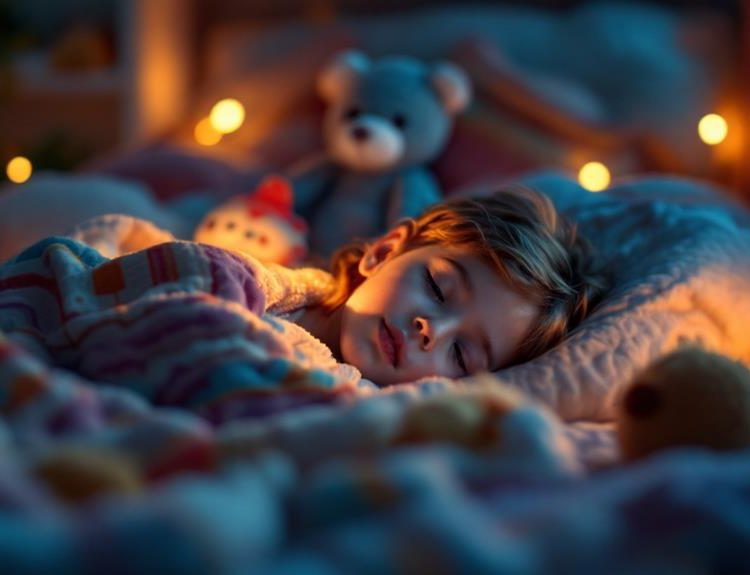How Family Dynamics Influence Social Skills
Family dynamics, like how your parents raise you and how you get along with your siblings, really shape your social skills. If your parents chat a lot and solve problems together, you’re likely to become a good communicator, too! Siblings help you practice sharing and resolving conflicts, which is pretty cool. Plus, when families support each other, it builds your confidence to make new friends. Different family types, like single-parent or blended families, offer their own lessons on adaptability. So, think of your family as your first social school—there’s so much more to learn about how it all connects!
Parenting Styles and Social Skills
Parenting styles markedly shape your child’s social skills and overall development. Think about it: your approach to parenting can influence how your child interacts with others. If you’re warm and encouraging, your child’s likely to grow up feeling confident and ready to make friends.
On the flip side, if you’re overly strict or critical, it might make your child shy or anxious in social situations.
You see, different styles—like authoritative, authoritarian, permissive, and neglectful—affect social behavior in unique ways. An authoritative style, which balances rules with warmth, often leads to children who can communicate well and resolve conflicts. It’s like giving them a toolbox filled with skills for life!
Permissive parenting might let kids run wild, but they might struggle with boundaries. And authoritarian styles can create kids who obey but mightn’t know how to express their feelings.
Role of Siblings in Development
Siblings play an essential role in shaping your child’s development and social skills. They’re more than just playmates; they’re also partners in learning how to navigate friendships and conflicts. When your kids interact with each other, they practice sharing, taking turns, and resolving disagreements. These skills are vital for making friends outside the home.
Having siblings means your child gets to experience a variety of personalities and communication styles. They learn to adapt, whether it’s dealing with a bossy older sibling or a spirited younger one. You might even notice them mimicking each other’s behaviors, which can lead to both good habits and, let’s be honest, some not-so-good ones!
Siblings also provide a safe space for your child to express their feelings. They can vent about school or share secrets, which helps them build trust and emotional intelligence.
Plus, those inside jokes? They foster a sense of belonging and teamwork, which is super important for social skills.
Impact of Family Communication
Effective communication within the family lays the groundwork for your child’s social skills and emotional well-being. When you share thoughts and feelings openly, your child learns how to express themselves and understand others. This creates a safe space for them to grow and interact with friends.
Take a look at the different types of family communication and their effects:
| Type of Communication | Positive Effects | Negative Effects |
|---|---|---|
| Open Discussions | Builds trust and confidence | Can lead to misunderstandings |
| Active Listening | Enhances empathy and connection | Can feel one-sided if ignored |
| Non-Verbal Signals | Teaches emotional expression | Mixed signals can cause confusion |
| Encouragement | Boosts self-esteem and motivation | Over-praising might create pressure |
| Conflict Resolution | Models problem-solving skills | Unresolved issues can create tension |
When your family communicates effectively, it helps your child develop essential skills for making friends and working in teams. So, chat about their day, listen to their worries, and guide them through misunderstandings. You’ll be amazed at how this simple practice can shape their social journey!
Emotional Support and Social Growth
A family’s emotional support plays an essential role in your child’s social growth. When you cheer your child on, listen to their worries, and give hugs after a tough day, you’re building a strong foundation. This sense of security allows them to explore friendships and social situations with confidence. They know they’ve a safety net at home, which makes it easier to take those social leaps.
Think about it: when kids feel loved and understood, they’re more likely to share their thoughts and feelings with others. They learn empathy and how to connect with their peers. Plus, having a reliable support system helps your child bounce back from social setbacks, like a friend saying something unkind. They’ll develop resilience, which is super important for making and keeping friends!
Encouraging open conversations at home also helps. When you discuss emotions and experiences as a family, it teaches your child that it’s okay to express themselves.
Family Structure Variations
In today’s world, family structures come in many forms, each shaping children’s social skills in unique ways. You might find kids growing up in single-parent homes, blended families, or extended families. Each setup brings different experiences that can influence how you learn to interact with others.
Here’s a quick look at how various family structures can impact social skills:
| Family Structure | Social Skill Development | Unique Challenges |
|---|---|---|
| Single-Parent | Greater independence | Limited adult support |
| Blended Family | Adaptability to new situations | Maneuvering complex dynamics |
| Extended Family | Strong sense of community | Potential for conflict |
As you can see, each family type offers its own set of benefits and challenges. In a single-parent home, you might learn to be self-reliant. Meanwhile, in a blended family, you’ll practice flexibility and understanding. Extended families can teach you the value of teamwork and cooperation. So, no matter your family structure, there’s always something to learn about social skills!
Cultural Influences on Dynamics
Family structures aren’t the only factors that shape children’s social skills; cultural influences play a significant role in family dynamics as well. Culture affects how families communicate, celebrate, and even resolve conflicts. For instance, in some cultures, kids are encouraged to speak their minds, while in others, listening and respecting elders is the priority. This difference can really shape how you express yourself and interact with others.
You might find that certain cultural practices encourage teamwork. Think about family game nights or community events where everyone pitches in. These activities can help build strong social skills, like cooperation and empathy.
On the other hand, if your family puts a high value on independence, you might learn to tackle challenges on your own, which can also be a valuable skill.
Food also brings people together, right? Sharing meals and traditions allows families to bond and learn about each other. So, whether it’s a big holiday feast or a simple dinner, the cultural context makes a big difference.
Conflict Resolution Practices
Conflict resolution practices can vary widely among families, deeply influenced by their cultural backgrounds and dynamics. Some families might sit down for a serious talk, while others may prefer to joke it out—yes, humor can sometimes diffuse a tense situation!
You might notice that some households encourage open discussions, where everyone shares their feelings. This approach can help you learn to express yourself better and understand others’ viewpoints.
On the flip side, some families might avoid conflict altogether, leading to a silent treatment that can stretch for days. In these cases, you might find it hard to develop strong social skills since you’re not practicing how to confront problems head-on.
It’s important to recognize that how your family handles conflicts can shape how you deal with disagreements in life. If you grow up watching your parents calmly resolve issues, you’re likely to do the same.
On the other hand, if shouting matches are the norm, you might need to work a bit harder to learn more peaceful ways to handle conflicts. Remember, practicing healthy conflict resolution now can make you a better friend and communicator in the future!
Long-term Effects on Relationships
Many people don’t realize how early experiences with conflict resolution can shape their future relationships. When you grow up in a family that handles disagreements positively, you’re likely to carry that skill into your friendships and romantic relationships. You learn to communicate openly, listen to others, and find solutions together. It’s like building a toolkit for your heart!
On the flip side, if you witness constant arguing or avoidance, you might struggle in your future interactions. You could find it hard to express your feelings or resolve conflicts without drama. Imagine trying to fix a leaky faucet with a hammer—it’s just not going to work!
These early lessons stick with you, influencing how you connect with others. If you learned to talk things out, you’re more likely to have healthy discussions when problems arise. But if you saw shouting or silence, you might either blow up or shut down.



